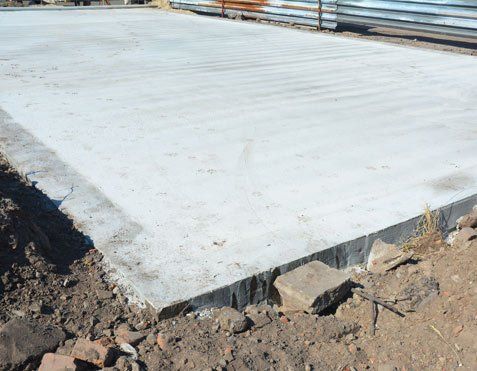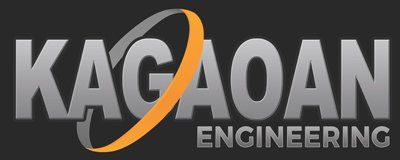Conventional Shallow Foundations
Conventional Shallow Foundations Consultants - NYC, Manhattan, The Boroughs, Nassau County, Suffolk County, Long Island, and New Jersey - Kagaoan Engineering

Conventional Shallow Foundation Consulting
Short depth slabs or shallow foundations are an affordable, convenient option for many property owners. These concrete structures manipulate the weight of a structure for a solid foundation. There are many kinds of shallow slabs, including mat or spread foundations which most people recognize as the concrete under a home or basement.
Our dedicated engineering and construction specialists have decades of experience working with the various soil types in the area. We understand how to compensate for places with too much drainage and how to reinforce shaky substrates with the correct foundation type.
Contact us
for free consultation.
The Purpose of Shallow Foundations
Many houses and residential buildings use shallow bases. It is not necessary or cost effective to put deep pilings or caissons in place for a two-story house. Shallow foundations are acceptable for use for garages, sheds, decks, porches, and other buildings up to three or four stories. These concrete, metal, or combination foundations put the weight of the structure on the surface of the soil instead of deep below the ground.
Most of these slabs types are evident by the wide design that is often many times the depth of the foundation. Building these items requires special permits, licensed contractors, engineering specialists, and strict project oversight. Our team at Kagaoan Engineering understand the shallow build regulations and can help your contractor or construction team design and build a project to satisfy any needs.
Types of Shallow Slabs
Although there are over a dozen names for shallow bases, there are a few types you may be familiar with or need for your project.
- Spread or step footing foundations - A spread footing is usually one consistent thickness unless it is a step foundation. Then, each layer will be the same geometric shape like a square with a uniform design. A stepped design is what we use for a heavy structure where we need to spread out the weight. This style of foundation is useful in areas where there are inconsistent soil areas or expectations for regular ground movement. The slabs take the energy from the movement of the ground and send it evenly throughout the base and structure safely.
- Mat or raft slabs - This foundation type is a style of slab on earth models. It is useful in areas where columns and walls will support the building. A man spreads the weight of uneven loads in a more natural fashion. Rolls or ducts go into the soil before the concrete slab to give the foundation freedom to move in seismic activity or settling. You may hear the term waffle or rib when researching these structural items.
- Slab on ground foundations - These bases are a form of spread footing. Many people call this version the traditional foundation. You will recognize these foundation designs by the way the crew digs out the soil to create a void large enough for the slab. These designs are some of the most inexpensive foundations to build. For heavier applications, steel beams can go into the concrete to cover larger weight loads.
- Bag and wire slabs - Instead of concrete, this method of stabilization uses bags of soil and barbed wire. Sand or soil bags are pressed down flat and layered with barbed wire. The wire digs into the bags and creates a robust and compact soil pack that holds the foundation together. To get the rows to stick tightly in a bundle and prevent separation, the team aligns each successive layer with a different orientation and starting point.
- Strap footings - Many people call these structures cantilever foundations. This style of base uses two concrete slabs and a connecting strap. A beam between the two supports gives the entire system more strength holding the foundation steady and protecting the structure.
Post-tensioned or Conventionally Reinforced Foundations
Conventional shallow foundation consulting teams use one of two methods to add more support to a thin depth structure. Adding cables or steel bars has advantages for building foundations. Cables are what most construction and architectural teams choose most because they offer the best control for cracking. The concrete sticks to steel bars where it will not stick to the cable coating. Instead of waiting at least a week for support like with cables, using the steel bars gives instant control against cracking.
Advantages of lightweight slabs
- Less intense process
- Fewer resources necessary
- Can cost as much as 20% less
- One pour for an even slab
- Fewer labor costs
- Fewer equipment rental fees
As local leaders in geotechnical engineering and foundation architecture, we are proud to offer New York and New Jersey companies exceptional customer service and engineering experience. Our vast array of projects working with small and large companies lets us cost-effectively tailor our services. We help you stay on time and on budget navigating the regulatory boards with our in-depth knowledge of local building codes and permit requirements. Contact our conventional shallow foundation consulting team to book your free consultation. We are here to help you navigate the regulatory process for installing your shallow foundation and soil testing.
Please contact us
today.
About Kagaoan Engineering
Kagaoan Engineering offers unrivaled local experience and knowledge for business and property owners in New York City, New Jersey, Connecticut, and adjacent locations. Our team has disciplines in multiple areas, including design, engineering, inspection, architecture, and rehabilitating foundations for private and commercial use. We work with many NY brands and businesses to perform soil testing, ground monitoring, and foundation remediation or construction. To find out more about our shallow foundation projects, contact us today.
Copyright 2017 The Kagaoan Engineering. All Right Reserved. Art Commercially Licensed by Shutterstock.

